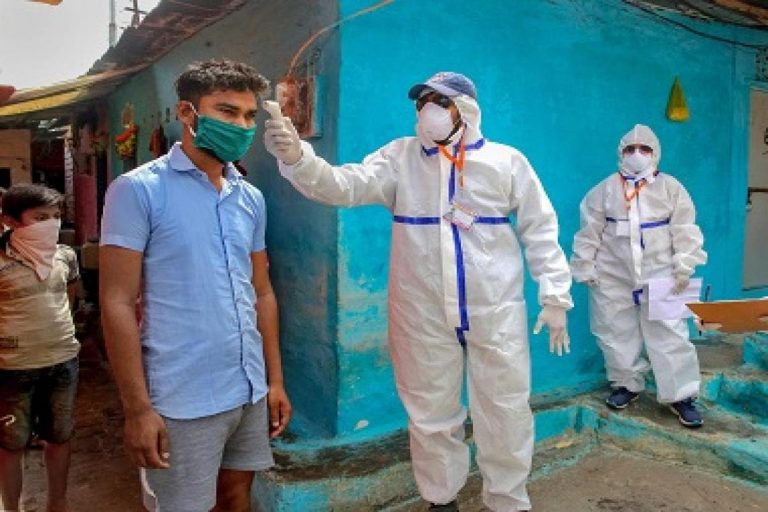
India on Saturday reported another highest single-day spike with 6,654 new cases of the coronavirus disease (Covid-19) in the last 24 hours, taking the infection tally to 125,101, according to data released by the Union health ministry.
This is the second time in a week that the tally of Covid-19 cases has surged beyond 6,000 and the third time that the country reported the biggest one-day rise in the number of infections.
On Friday, 6,088 new cases were recorded and before that 5,611 infections were seen on Wednesday in the span of 24 hours, health ministry data shows.
The death toll related to the respiratory disease stands at 3,720 on Saturday after 137 people succumbed in the last 24 hours, the health ministry’s Covid-19 dashboard showed.
The Covid-19 recovery rate has gone up to 41% as 51,783 people have been cured as the country entered the sixth day of the fourth phase of the lockdown.
According to government data released by NITI Aayog member Vinod Paul on Friday, lockdown 1 and 2 has managed to significantly slow down the virus transmission rate in the country and avert between 1.4 and 2.9 million Covid-19 cases and 54,000 deaths.
“The situation would have been much worse, as the data suggests. We have about 95% confidence level on the data generated out of all this analysis, which is proof enough to say that the country is on the right track. Having said that, this kind of analysis is always prone to improvisations, depending on the kind of data that’s fed,” Paul said.
The government has maintained that lockdown was meant to slow the disease transmission so that it got enough time to upgrade the health infrastructure in terms of hospitals beds, testing capacity and trained human resources, among other things, to better manage the coronavirus pandemic.
At least five different agencies were involved in data analysis, providing a range between 1.4 and 2.9 million cases averted, and between 37,000 and 78,000 deaths averted.
The analysis also shows that much of the outbreak is confined to a limited area. As of May 21, around 80% of the Covid-19 cases were limited to five states, and 90% of the cases were spread largely across 10 states.
The states are Maharashtra, Tamil Nadu, Gujarat, Delhi, MP, Rajasthan, UP, West Bengal, Bihar and Karnataka. In the cities, about 70% of the cases are confined to just 10—Mumbai, Delhi, Chennai, Ahmadabad, Thane, Pune, Indore, Kolkata, Hyderabad and Aurangabad.
The deaths follow the same pattern, with 95% of Covid-19 deaths being reported from 10 states and 70% from 10 cities.
The 10 worst affected states in terms of deaths are Maharashtra, Gujarat, Madhya Pradesh, West Bengal, Delhi, Rajasthan, Uttar Pradesh, Tamil Nadu, Andhra Pradesh and Karnataka. And the 10 cities from where maximum deaths are being reported are Mumbai, Ahmadabad, Pune, Delhi, Kolkata, Indore, Thane, Jaipur, Chennai and Surat.
Maharashtra now has more than 44,000 Covid-19 cases and 1,517 people have died in the western state, which is the worst hit in the country.
Tamil Nadu has 14,753 infections and Gujarat has reported 13,268 cases of the coronavirus disease so far.
With 12,319 Covid-19 cases, Delhi is the fourth worst-hit region in the country.
The Union health ministry has also issued an advisory expanding the pool of people to be given anti-malarial drug hydroxychloroquine (HCQ) as a prophylactic to prevent them from contracting the infection.
The earlier HCQ advisory on March 23 cleared its prophylactic use for two high-risk groups: asymptomatic healthcare workers involved in the care of suspected or confirmed cases, and asymptomatic household contacts of confirmed cases.
Experts have also said the medicine must not be given to patients suffering from heart diseases, hypersensitivity etc. The drug is also not recommended for children under 15 years of age, pregnant and lactating women.
Doctors feel more evidence is required before confidence in the drug can be reinstated.